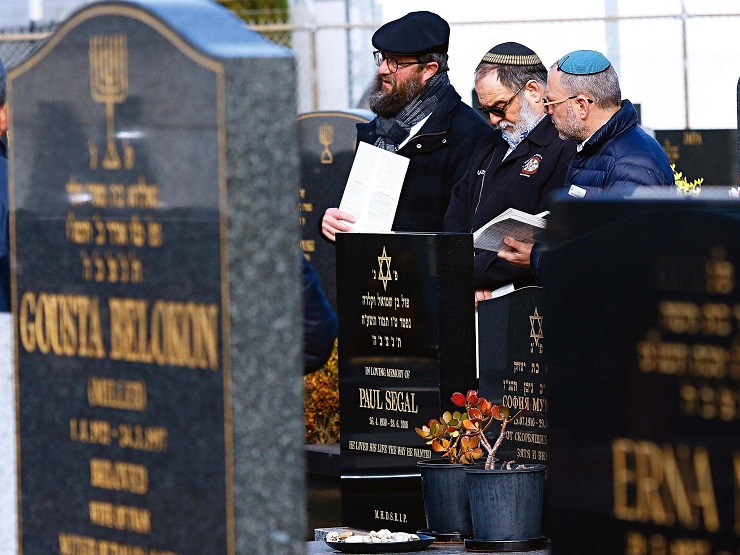Paul Segal died alone with no known friends or family. And then a stranger stepped up with a parting gesture.
The tenth man arrives quietly and just in time. He is dressed in grey, a sombre hue that blends with the day and the location, and he stands solemnly beneath a thin Melbourne winter sky to commemorate a man he never knew. He says nothing for several minutes, listening respectfully to a few short speeches, taking in the brief words that mark the final account of an elderly man’s life, and only when the talking is over does he move. In the absence of any next of kin, he steps forward to recite a memorial prayer for a man he has only known of in death.
Paul Segal lived for 88 years. And then he was almost forgotten. He died some time last winter, date unknown, his absence not noted for at least a month until neighbours, who had not seen him for a while, detected a stench from his small rented apartment in Elsternwick.
Segal’s story was detailed in The Weekend Australian Magazine in August last year: how police had discovered, through the sole referee on his lease, that he was Jewish; how 10 days later, in the absence of any known friends or relatives, his body had been released into the care of Fred Grossman, CEO of the local Jewish burial society, the Melbourne Chevra Kadisha. And how, 48 hours before the planned funeral, Grossman had put out a call on social media: “Mr Segal has no family or friends who have been identified,” he wrote, inviting community members to attend the service.
Read the article by Fiona Harari in The Australian.

